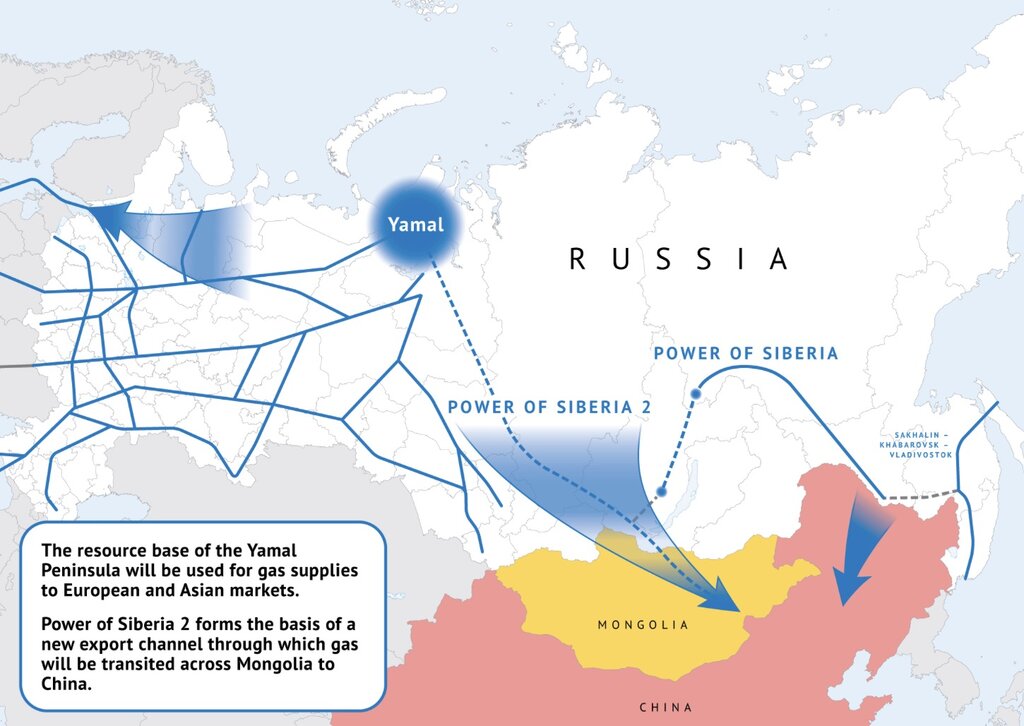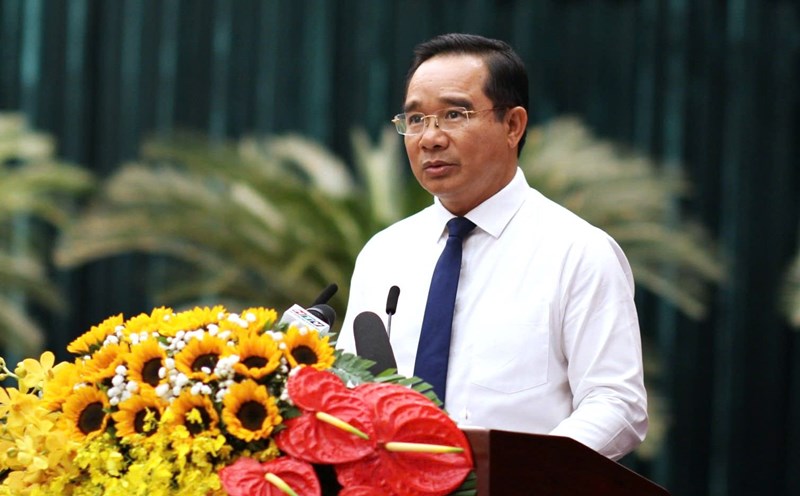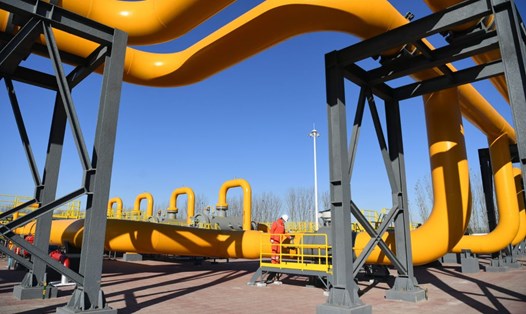China - the world's leading gas consumer - diversified energy imports last year enough to reduce risks for any individual market. Analysts say the move reduces the likelihood of starting the Power of Siberia 2 gas pipeline - a joint project between Russia and China.
According to observers, Beijing may buy more liquefied natural gas (LNG) from the US to address the bilateral trade imbalance that has led to the US imposing tariffs on Chinese goods.
The world's second largest economy imported 76.7 million tons of LNG last year, up 7.7%. Meanwhile, China's gas imports via pipeline increased by 13.1% compared to the same period last year to 55 million tons.
Total Chinese LNG imports from Australia will reach 26.2 million tons in 2024, accounting for about 34% of the country's total imports.
Turkmenistan is China's largest gas supplier via pipeline, transporting $9.6 billion in gas last year, accounting for 45.37% of total gas imports via pipeline.
Russia ranked second, with $8 billion of gas transported via pipeline, accounting for 38.1% of China's total gas imports via pipeline.
Russia is also the third LNG exporter to China, after Qatar, with 8.31 million tons, equivalent to 10.8% of total LNG imports.

"As far as I know, the Power of Siberia pipeline between China and Russia is not operating at full capacity, so there is a problem with demand," noted Alicia Garcia Herrero, chief economist for the Asia-Pacific region at Natixis.
The Power of Siberia pipeline currently extends to Shanghai, with an annual transport capacity of 38 billion cubic meters.
Expert Garcia- Herrero pointed out that although the gas purchase agreement signed between China and Russia in 2009 was for 10 years, China also signed a gas supply agreement with Qatar after the conflict in Ukraine broke out. This shows that Beijing is trying to prevent the geopolitical impacts of that conflict.
However, the US-China bilateral relationship has also had an impact, expert Garcia- Herrero pointed out.
Last year, China imported about 4.2 million tons of LNG from the US, up 32% over the same period last year. Imports from the US account for 5.4% of total LNG purchases by Beijing.
Experts say the US is likely to demand China to reduce its dependence on Russian oil and buy shale gas from the US, a similar strategy has been applied to India.
Data from New York-based industrial news agency LNGPrime shows that China's gas and LNG imports via pipeline last year increased by 9.9% to 131.7 million tons.
The Power of Siberia 2 pipeline will transport Russian gas via Mongolia to China rather than to Europe as before.
Russia has reaffirmed its interest in the Power of Siberia 2 project. However, the pipeline may not soon be included in the Russia-China bilateral discussion agenda, SCMP pointed out.
The Hong Kong-based newspaper (China) pointed out that the Power of Siberia 2 project has been removed from Mongolia's action program until 2028, signaling a major decline.











